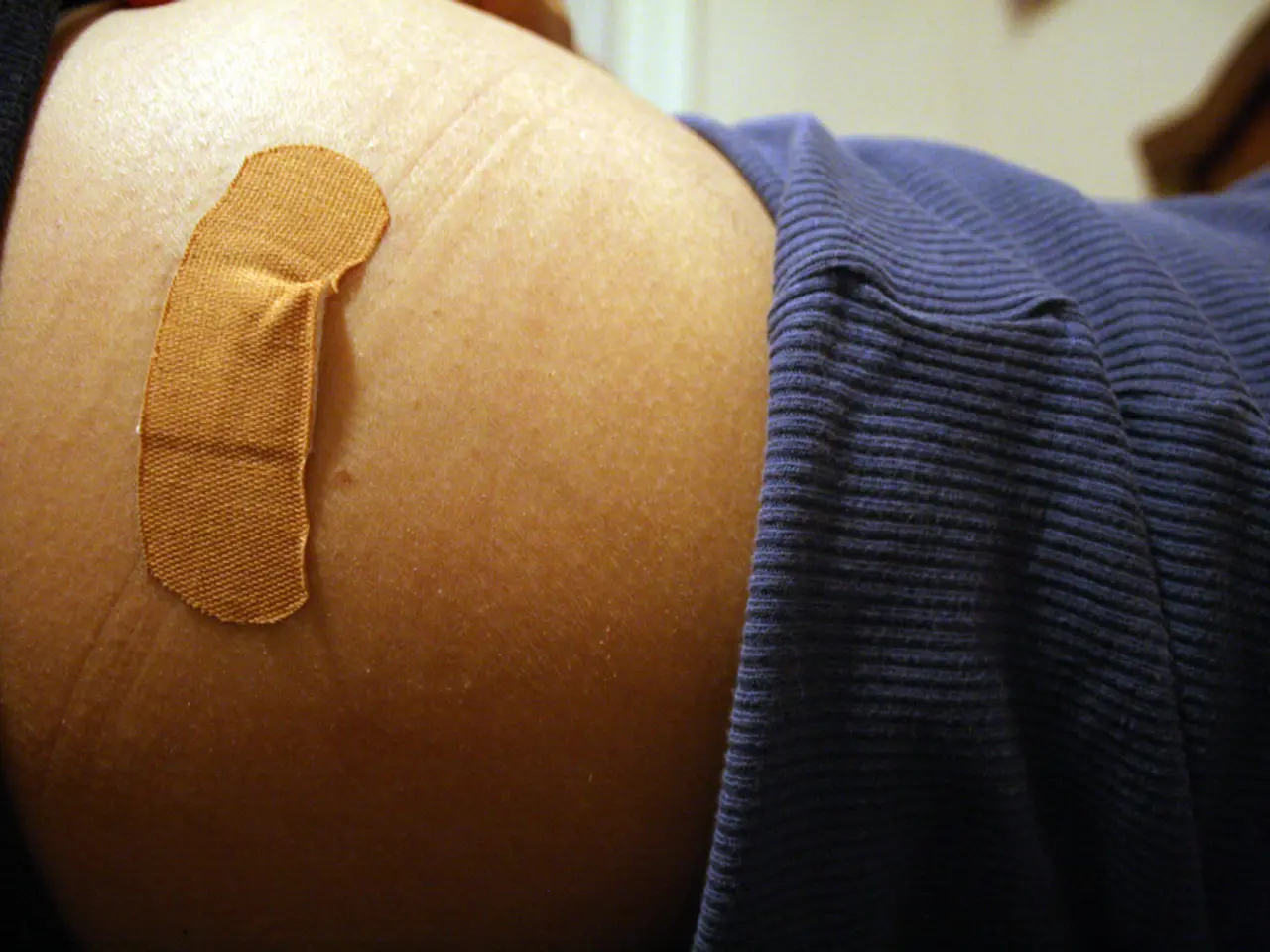Challenges linked to managing type 2 diabetes
Diabetes, a common health condition, can lead to a variety of serious long-term complications if not managed properly. One such complication is heart disease, which includes heart attacks, strokes, and congestive heart failure [1][2][3][5]. High blood sugar levels damage the blood vessels and nerves over time, contributing to these complications.
Another common complication is nerve damage, specifically diabetic neuropathy, which affects around 50% of people with diabetes [1]. Peripheral neuropathy, the most common form, affects the nerves in the hands, feet, legs, and arms. Diabetic neuropathy can lead to diabetic ulcers, open wounds that are slower to heal due to the condition [1].
Vision problems are also a concern for people with diabetes. Diabetic retinopathy, an eye disease resulting from damage to blood vessels in the retina, can lead to vision loss [1]. Regular eye checkups are crucial for early detection and prevention of serious vision issues [3].
Oral health complications are also prevalent in people with diabetes. These can include periodontal disease, dry mouth, and thrush [5]. Maintaining good oral hygiene and receiving regular dental checkups can help prevent or delay these complications [2].
Skin complications are often one of the first visible signs of diabetes, caused by high blood sugar levels leading to dehydration, inflammation, and poor circulation [1]. Conditions such as diabetic dermopathy, which causes spots or lines to form on the skin, and necrobiosis lipoidica, which causes small solid bumps that progress to patches of swollen hard skin, are common [1].
Chronic kidney disease (CKD) is another common complication in people with type 2 diabetes, causing a slow and progressive loss of kidney function [1]. Acanthosis nigricans, a darker patch of skin that typically appears around the neck, armpits, and groin, is also associated with type 2 diabetes [1].
Managing diabetes, blood pressure, and cholesterol through diet, exercise, and medication can help reduce the risk of these serious long-term health complications. The ABCDE strategy, which includes regular A1C tests, regulating blood pressure, managing cholesterol levels, stopping smoking, and making lifestyle changes, is a useful approach for managing type 2 diabetes [4].
Good foot care and regular eye examinations are also essential for early detection and prevention of problems like infections and vision loss [3]. If someone with diabetes experiences vision loss or oral health problems, they should receive urgent medical attention [2].
In conclusion, comprehensive diabetes management that includes lifestyle modifications, medication adherence, and regular medical check-ups is essential to reduce the risk of these serious long-term health complications.
- A naive approach to managing diabetes can lead to serious long-term complications, such as hypertension and heart diseases like heart attacks, strokes, and congestive heart failure.
- Hyperglycemia, or high blood sugar levels, damages the blood vessels and nerves over time, contributing to these complications.
- Diabetic neuropathies, specifically diabetic neuropathy, affect around 50% of people with diabetes.
- Peripheral neuropathy, the most common form, affects the nerves in the hands, feet, legs, and arms, potentially leading to diabetic ulcers.
- Vision problems, such as diabetic retinopathy, are a concern for people with diabetes, and regular eye checkups are crucial for early detection and prevention.
- Other oral health complications in people with diabetes, like periodontal disease, dry mouth, and thrush, can be prevented or delayed with good oral hygiene and regular dental checkups.
- Skin complications, often one of the first visible signs of diabetes, can be caused by high blood sugar levels leading to dehydration, inflammation, and poor circulation.
- Chronic kidney disease (CKD) is a common complication in people with type 2 diabetes, causing a slow and progressive loss of kidney function.
- The ABCDE strategy, which includes regular A1C tests, regulating blood pressure, managing cholesterol levels, stopping smoking, and making lifestyle changes, is a useful approach for managing type 2 diabetes.
- In addition to seeking therapies and treatments for type-2 diabetes, it is essential to be aware of and manage other medical-conditions, such as hypertension and other heart diseases, to ensure overall health and wellness in diabetes management.




